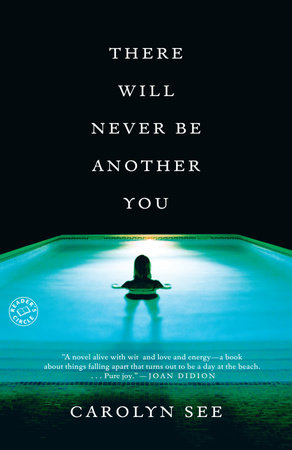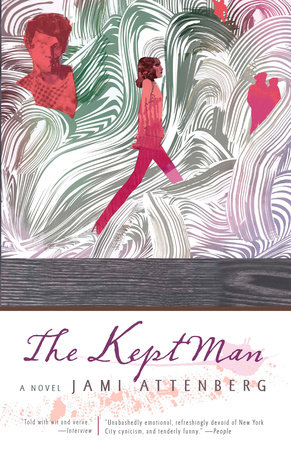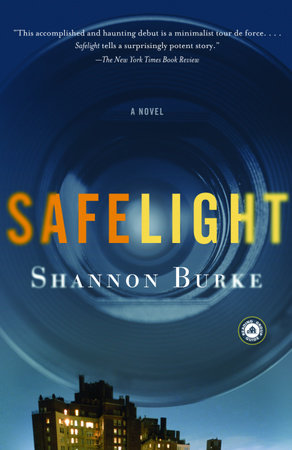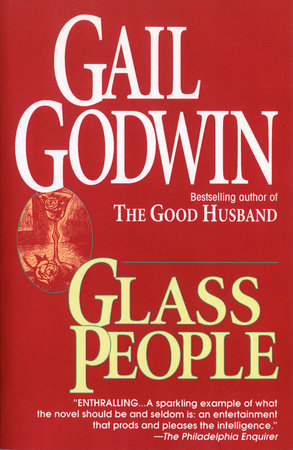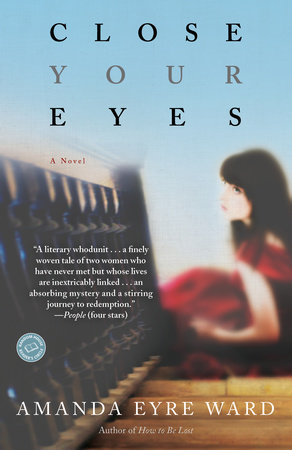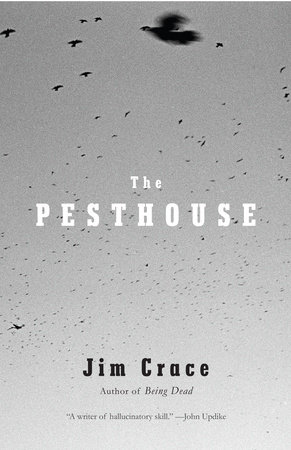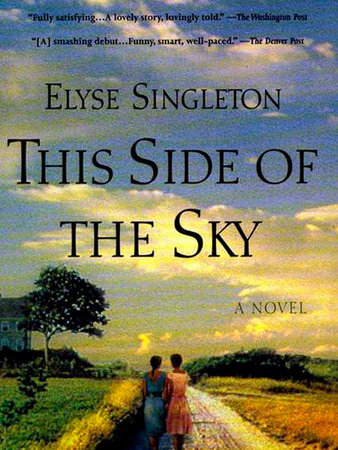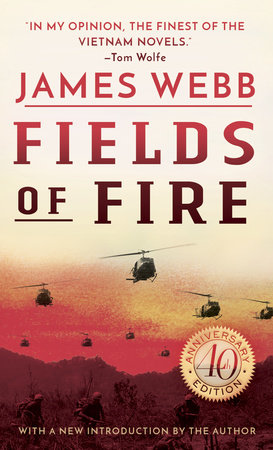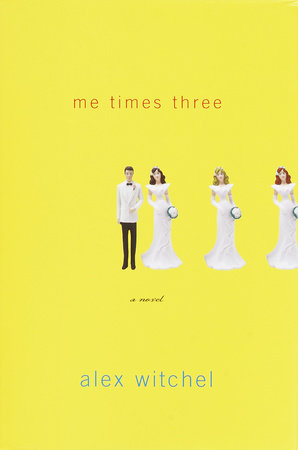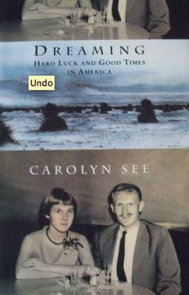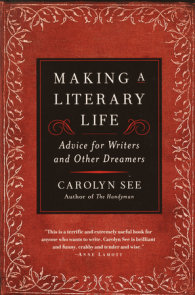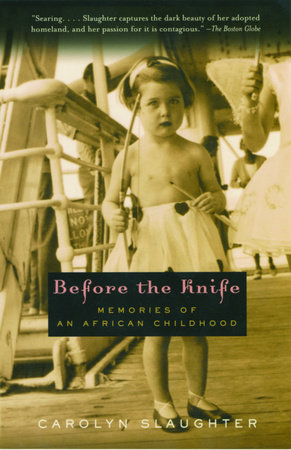Author Q&A
A CONVERSATION WITH CAROLYN AND LISA SEE
LISA SEE is Carolyn See’s daughter. She is the author of five novels, including the recent Peony in Love, the critically acclaimed New York Times bestseller Snow Flower and the Secret Fan, Flower Net (which was nominated for an Edgar Award ), The Interior, and Dragon Bones. She is also the author of the widely acclaimed memoir On Gold Mountain. She lives in Los Angeles.
Lisa See: I was excited and honored when Random House asked me to do this Q & A with you. You’re my mom, and you’ve been a huge inspiration to me. I suppose I also know more about you and your writing life than anyone else on the planet. Even so, there are plenty of things I don’t know, and this gives me the chance to ask those questions.
Carolyn See: Sweetest Lisa, it’s just a joy to be having this conversation with you. It’s true, you probably know more about me as a writer than anyone else in the world. And I take credit that I think I was the first one to recognize the tremendous literary importance of Snow Flower and the Secret Fan. I think it compares to Andre Malraux’s Man’s Fate, and said so from the first. It’s so cool that we can talk to each other as writers.
L.S.: You’ve written a lot about the mother-daughter relationship, but in There Will Never Be Another You, you’ve focused on the father-son relationship. Why did you do that, and was it more difficult to write?
C.S.: In Another You, I write about fathers and sons because mothers have a tendency to annex child rearing for themselves, as in “You make the money, I’ll take care of the kids.” But when men have children they’re looking at heritage, legacy, a shot at immortality. Phil, in Another You, has had not one but two fathers, both of them wonderful in their own ways. He’s acutely aware that he doesn’t–so far in his life–seem to be measuring up to either of his examples. His children regard him with ill-disguised contempt. He sees his son, Vernon, growing into a life of screwing up; Phil thinks he’s at least partly responsible, and it’s breaking his heart. When children screw up–thank God I don’t have this problem!–there’s always the question, Who do you blame, them or yourself? Phil blames himself. But he’s only the dad. He doesn’t exercise the real authority over what’s going on with his kids. It’s horrible for him.
L.S.: In this novel, I see elements of people we know or are related to. With There Will Never Be Another You, I’m thinking specifically of Harvard and Dash, to whom you dedicated the book. Generally speaking, how do you take the traits of real people and turn them into characters? More specifically, how are Dash and Harvard present in this novel?
C.S.: Harvard was an old boyfriend of mine, a second father to you–he adored you–and Dash is my younger daughter Clara’s beautiful autistic son, who was about five when I began to write the book. Harvard’s soul lives in Phil; Dash’s spirit informs Vernon. Harvard was a bachelor, overweight, bumptious, jolly, and depressed–not physically like Dr. Philip Fuchs at all. Dash is affectionate, thin as a rail, otherworldly, not at all like the mean and angry Vernon. But Harvard didn’t fit in his life; neither does Phil. And both Vern and Dash face a dubious, iffy future. More generally, when I “use” a person from real life in a fictional narrative, I take what I consider to be a person’s “soul,” body-snatch it, and put it into another person’s body, or life. Sometimes, I must say, that method works better than other times.
L.S.: How much of you is in Edith?
C.S.: There’s a certain first-person narrator who wanders through some of my novels, The Rest Is Done with Mirrors, Mothers, Daughters, Golden Days, and now Another You, who certainly resembles me. That voice changes as I change. But Edith isn’t me. She weighs half as much as I do and she’s ten years younger. She’s more sophisticated. (But I’m more educated.) In my mind, she owes something, maybe, to both your grandmas. She’s been a traditional wife, and now she doesn’t have a husband. She’s crabbier than I am, I think. She’s come to a point in life where she just throws up her hands in dismay.
L.S.: Your last two novels–There Will Never Be Another You and The Handyman–have men as main characters. What are the challenges of getting into a man’s mind?
C.S.: I think the main challenge was to try as hard as I could to let go of my preconceptions about men in general. In my life, they’ve often been “cute,” or “tyrants,” or “saints,” whatever. But in both The Handyman and Another You, I just took the position that they were actual human beings, as human as I am. Then, when I did that, I had to “notice,” as we used to say, that men have a terribly hard time just making a go of it in this society. They have to be strong, they should try to excel in what it is they do for a living, they have to deal with the myriad needs and whining of women in their lives, and they’ve got the incessant distractions of their dicks, which often have their own agendas. They’re often as dazed and confused as we are, but they can’t admit it. So I went with that. And no guy has complained!
L.S.: Vernon is an unexpectedly pivotal character. Was that planned, or did it evolve?
C.S.: You don’t see too many children in novels–unless they’re in children’s books or written from a child’s point of view. I think there’s a fear of getting the dialogue wrong or just generally hitting a wrong note. I loved playing with Eloise and Vern. Eloise is just awful, and she likes it that way. She thinks she’s been born into the wrong family, and she’s right. Vern is something else. He’s the wild card–the unsolvable problem, the thing none of us can figure out. He’s literally a lost soul. I guess–in my novels, if not in my life–I like to give those people an unexpected, entirely unexpected, happy ending.
L.S.: I love the dead cats on the UCLA campus. They’re so creepy and scary. Where on earth did you get that idea? Do you have something against cats?
C.S.: Oh, Lisa, you know I love cats!
L.S.: I know. Clara put me up to it! She says lots of people have asked you this.
C.S.: That’s true. There’s something creepy about an animal in the wrong place. Remember when we all lived in Topanga Canyon and went on a rampage against gophers and nearly killed ourselves in the process? Or how your own life has been plagued by tree rats? I’ll never forget a classified monograph I read from the Rand Corporation that said the life of Los Angeles depended on whether or not the plague-infested squirrels in the Santa Monica Mountains ever came down into town and said hi to our city squirrels, because then the whole metropolis would come down with bubonic plague. When animals around us start dying, that’s the gypsy’s warning. And we know there are way too many feral cats on the campus of UCLA!
L.S.: I’ve known you since you were twenty-one years old and watched you become a writer. Let’s talk about writing and your body of work. Your love of jazz is well known, and it’s often said that your writing is like a jazz riff. How does music–and jazz in particular–feature in your writing?
C.S.: One of the things I admire most about your writing is your ability to plot. I just don’t have that! But when I think about it, you’re right, I write a novel as a jazz piece. I do the first and last chapters first–the way a combo will play a tune, then each musician will improvise a solo on top of the chord changes of that tune, then they all come together again at the end, reprising the tune, but if it’s been good, you’ll “know” so much more about what the tune means at the end, be transformed by it. I just found out that Lester Young would turn his back to the audience and mumble the lyrics of a song to his musicians right before they played it, so they’d “know” what they were playing. The last section of Another You is meant to be like the reprise of the jazz standard that the novel is named after, on an album where Warne Marsh and Lee Konitz come together so beautifully for the last chorus. It’s one of the prettiest, spookiest pieces of music I know.
L.S.: It seems to me that fear has often served as inspiration for your novels. In Golden Days, you dealt with the fear of nuclear annihilation. In Making History, you looked at what happens to a family when a child dies. And now, in There Will Never Be Another You, you’ve created a post-9/11 world where plagues and wars and other scary things are happening. Could you talk about the juxtaposition of worldwide terror with the terrors we experience in our daily lives? Is it easier to focus on the big terrors or the other way around?
C.S.: Oh, Lisa, you know I’m terrified of everything! I took a test in high school about being fearful and scored ten out of ten. I devoted a whole chapter in Golden Days to “How Scared We Were.” I’m scared of abandonment, the Bomb, riding in cars, being the last one chosen on the team, and scared when you kids would get sick. Just looking at our president’s face on television scares me, before he even opens his mouth. I know it’s never going to be good news. Then, being scared makes me mad. I get so furious with government, or bullies, or threats. And I think there’s no real line of demarcation between the “Big” or “Little” things that threaten us. During the anthrax scare, I’d just look at the envelopes on the table, knowing I’d have to open them but not liking the prospect at all. The thing is, I’d bet a million other people are as scared as I am. I do know that fear–and finally getting over some of it–is what powers my books.
L.S.: You were born in Los Angeles and have lived here your entire life. All of your novels take place in Los Angeles. What is it about this city that keeps you writing about it?
C.S.: As you know, I have an elderly boyfriend who taunts me about being a “regional” writer. He just doesn’t get it–that I want to be a regional writer! When I did my doctoral dissertation on the Hollywood novel, there were literally hundreds of them, written by hundreds of people, but only three guys at that time, forty years ago, had written about Los Angeles. When I was young and dopey, I’d fret about how life had already passed me by–I’d never get to be in Paris in the twenties, where people were doing wonderful work and having so much fun. I’d missed it. Then I thought, What if I get to be in Los Angeles in the twenties of the twenty-first century? And later, people will gnash their teeth because they weren’t here, creating and having fun. I love this place more than I can say. It’s huge and inexplicable and mysterious. I wish I had another lifetime to explore it.
L.S.: Making a Literary Life is the best book I’ve read on writing and how to become a writer. And I’m not just saying that because you’re my mom! I know the answers to this, but could you tell the readers about a typical writing day for you? Do you have any rituals that you follow or particular music you listen to?
C.S.: A typical writing day. When it’s going well, after breakfast I go out on the balcony where I live, or sit on the couch or at the kitchen table, pick up a felt-tip pen and a pad of white paper and write a thousand words–or revise for about two hours. I usually put on Van Morrison, turned down very low. I like the chanting, repetitive pieces he does, like when he’ll sing, “my waitress, my waitress, my waitress,” about fifteen times over, and I like his magical quality. I can stand any distraction, I can write anywhere. I love when people call up, because then I get a break. I don’t like to work more than two hours. But I have to say, there are other days when I’ll hang out and mope, or read, or procrastinate and get anxious–do anything to keep from writing.
L.S.: You’ve given me tons of advice about how to start and keep writing even in the face of disappointments and skepticism from others. When you started writing, there were very few writers in Los Angeles, let alone women writers. Because of that, it seems to me that you faced a lot of obstacles. How have you managed to stay true to your artistic vision?
C.S.: You just do it, that’s all. Every writer has to be a little bit delusional about his or her work. We have to know it’s good. Even if we hate it, we have to know it’s good. Perseverance, stubbornness, has everything to do with keeping on. When I started writing, I was the wrong age, too young, the wrong gender–not all that many women were writing for a living then–and on the wrong coast, the west one. But you just have to put all that aside and go on working. I remember when you were working on your family history, On Gold Mountain, a lot of elders on the Chinese side of your family didn’t want you to do it. They grumbled and even threatened. But you just went ahead and did it, and now they’re so proud. Stubbornness doesn’t guarantee success–we both know that. But at the very least, it gives you the experience of writing, which is the most important thing.
L.S.: You’ve always written about families, and you’ve borrowed a lot from our family. Over the years, I’ve certainly recognized your parents, my dad and my stepfather, and my sister and me in various characters. In your early work, you could sometimes be cruel and unforgiving, especially to the mothers. In your more recent novels, you’ve been more kind, empathetic, and benevolent to your characters, even though they’re just as wacky and clueless. Could you talk a bit about that evolution for you as a writer and as a person? Similarly, in your early novels, you could be–and forgive me for saying this–a bit harsh and bitter. These days, critics and readers call you warm, witty, and wise, which you are! How have you been able to find humor in the most difficult circumstances?
C.S.: It’s no secret that I had a pretty gothic childhood. It’s a tiresome fact that my mother hated my sister and me, really couldn’t bear the sight of us, and kicked us both out of her house when we were just sixteen. It’s hard to be attacked for simply existing when you’re a child. My sister turned to drugs very early on and died young. But remember when I was talking about fear turning into anger? By the time I was sixteen I was so angry that I didn’t even know I was angry. It was my key to survival. I knew the world was a terrible place. I lived alone in furnished rooms, worked for a Ph.D., was convinced that I wouldn’t end up like my mother, who I perceived of as both a monster and a victim. The irony was: I was already like my mother. I was married twice, when I was still young, to your father and to Clara’s dad. I feel sorry for those guys. I was enraged all the time. We had a lot of fun, but my fury was just under the surface. When I first started writing–say, for TV Guide–if they wanted a hatchet job, they’d ask me, because I could only see flaws and wickedness. You and Clara suffered for this, and I apologize to you both from the bottom of my heart. Then–and I think of it as a lifelong journey–I began to get a grip. I found a wonderful therapist. We stumbled into–how embarrassing now!–prosperity seminars, which didn’t make us rich but let us all have a huge amount of fun. Harvard was very kind to us. Then the wife of the director of my doctoral dissertation died. He waited a year, then came to call, and we were together for twenty-seven years. John Espey, a terrific writer and a wonderful man, taught me that life, for all its cruelty, was marvelously interesting and beautiful. I started writing at the end of my second marriage, when I was absolutely frantic with rage and fear. But the writing saved me, you girls saved me, therapy, seminars, and Mr. Espey saved me. So, over the course of thirty-five years, my characters changed from wacky and monstrous to wacky and clueless, limited in many ways, as we all are. But capable of redemption, as we all are. Does that sound pious enough?
L.S.: People who are reading this might be curious about our relationship. You’re a writer and I’m a writer. But what people may not know is that your dad was a writer and my sister, Clara, is also a writer. So here we are with three generations of writers. Can you talk a little about Grandpa George? In what ways did he shape you–for good and for bad–as a writer?
C.S.: Ah, Grandpa George. My dad. He left when I was eleven, damaging my mother for life. But he himself had had a monstrous childhood. When he was fourteen his mother killed herself–blew her head off with a shotgun–and he was the one to discover the body. The family story is that she’d left a note accusing her husband of hideous sexual excess. Daddy grew up to be a Clintonian ladies’ man, collecting many wives and girlfriends. But along with that, he loved literature, wanted more than anything to be a writer. He was too shy, though. Perhaps he couldn’t take the rejection. He was insanely funny; it was his way of coping with pain. He wrote columns for neighborhood newspapers, dreamed about writing the great American novel. Then, when I was thirty-five and working as an expert witness in pornography trials, his fourth wife had a son. I went down to help with the baby. I was in the kitchen with a stack of porn, he picked up a book, idly leafed through it, and said, “I can do better than this.” It was the beginning of his literary career. He was sixty-nine and went on to publish seventy-three volumes of hard-core pornography. I’ve only read four, but I know they were spoofs of different genres and howlingly funny. I understand them now to be the end of a lifelong argument he was having with his dead mom–that there’s nothing wrong with sex, that it’s part of the human condition, and we should all try and lighten up about it. I learned from him how to love words for their own sake, to mask rage with humor, and to try to be a good person, even if it doesn’t always work out as planned.
L.S.: We talk on the phone every day about our work, and we do a lot of speaking events together. Can you talk about how we support each other yet keep our identities and careers separate?
C.S.: I think the work has been a wonderful blessing for both of us–and for Clara too, though she’s become more of an autism advocate. It’s given us something to talk about and strive for outside of ourselves. I don’t see us as ever having been in competition. For one thing, we’re doing entirely different things. You write about China, for instance, I write about L.A. And our voices are entirely different. It’s like the difference between eggs Benedict and lemon meringue pie: they both use eggs, they’re both yellow and white, but you would never mistake one for the other. I’m more proud of your success than I could ever say. Aside from our separate creative work, there’s the other stuff we can do together–go to each other’s signings and talk to people in line, address the announcements and invitations when either one of us has a book coming out. I love those times we get to spend together. We don’t fight, because we’re busy working! It’s really, really nice.
L.S.: Readers of this wouldn’t forgive me if I didn’t ask what you’re working on now. What’s next?
C.S.: You gave me the idea, you rascal! I keep talking, these days, about my women’s group, which has been together for thirteen years, longer than some marriages. We were rowdies in our youth; now we’re sedate old ladies, but not really. You suggested I write about not them, but about women like us, who mostly have lost our husbands, or struggle with illness, or deal with “wacky and clueless” grown children, and still manage to have more than their share of adventures. These women have careers, come from all over the world. They have lovely lives. At the same time, death is the uninvited guest at each of their elegant lunches. This will be a romantic celebration of female friendship that–in my more grandiose moments–I think could echo the history of women in America for the last fifty years. The title: Love, Death, Lunch.
